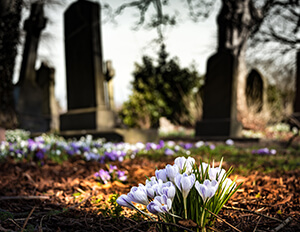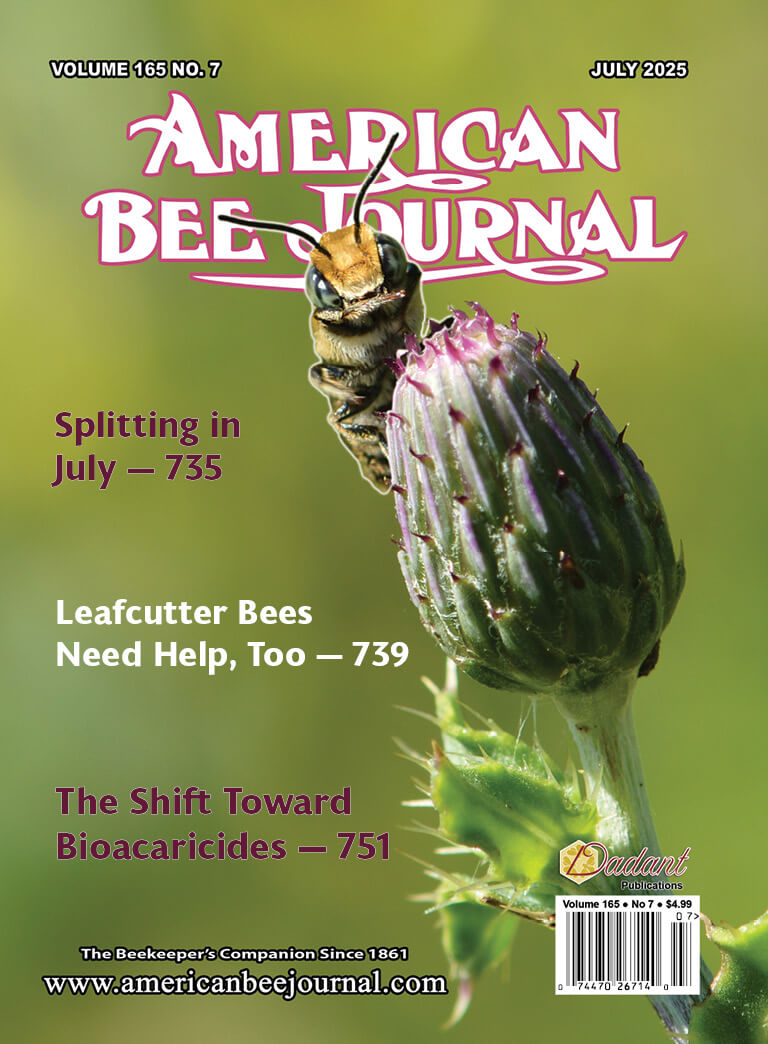
Why do people keep bees? These days, it seems that honey has nothing to do with it. “I don’t care about the honey,” they say with conviction. Instead, they cite a desire to pollinate their gardens or save the bees. Maybe that’s true for some. Others, I think, just want to look cool or intimidate the neighbors. Their reasons are personal and multilayered, but for me, it was always the honey.
I grew up in the Appalachian Mountains of Pennsylvania, a wild place where I learned to love nature and covet solitude. The mountain folk were superstitious — something I’m definitely not — but they managed to instill in me many other traits, including a painfully embarrassing diction that still surfaces now and again. In unguarded moments, I’m apt to mutter, “I just as lief stay home” or “It’s fixin’ to rain,” or worse, “Don’t touch! That’ns his’n, not your’n.”
I’m convinced my fanatic approach to English is a response to being mocked when I began school in a “civilized” part of the world where they didn’t take kindly to my speech. It also made me shy.
The scent of the country
My mother married well, as they used to say, and the young physician who became her husband took her far from her Appalachian roots. But when military service called, he went to war and my mom and infant me spent the next four years back in the foothills with my grandparents. Without a doubt, those were the formative years of my life. I became a child of the mountains, the sparkling beech/maple forests, and the nearby fields teeming with corn and buckwheat and potatoes. The memories of those carefree days are as much a part of me as blood and bone.
The family farms were a complex of smells: fermenting silage, wheat bending to the wind, and cow manure, fragrant in its steamy way. The local farmers had lots of children, kittens, a few pigs, and a scattering of hens that left eggs under porches and beneath bushes. They each had their own aroma, as did the open kitchen windows that smelled of bubbling ham bones, elderberry pies, and freshly baked biscuits.
The weekly wash was hung from ropes that straddled the yard, tree to tree, and was kept off the ground with a center support that tilted with the wind. Wooden clothespins held the clean clothes in place, their surfaces as smooth as marble from years of use. Within minutes of pinning, berry-colored bird droppings marred the sun-bleached sheets, but no one seemed to notice. Folks just brushed the seeds away once it dried, leaving nothing but the scent of a summer day.
Sounds of life
The countryside was noisy, loud with birds, insects, machinery, and livestock. Everything, it seems, had something to say. Each morning I was awakened by the clanking of metal milk cans from the diary down the road. The cans danced and clanked along the chain-driven conveyor and into the dark building. All day long, beginning at five in the morning, the trucks arrived and left, with squealing brakes that announced their progress, but what happened inside that building, I never knew.
Insects of all sorts called, buzzed, scratched, and tsipped in the fields. Regardless of what was planted — food or forage — they rattled and trilled through day and night.
The ubiquitous beehives
On the edges of the fields, chalky curls of lead-based paint laced the beehives that leaned precariously this way and that. The hives weren’t tended, except to harvest the honey, and I never once saw a bee suit. Nearly every farm had bees, three or four hives were common, although not much was said about them. They were unremarkable fixtures, like woodsheds, corn cribs, and bird baths.
Although people didn’t discuss bees all that much, honey was everywhere. A comb of honey sat on the kitchen table along with salt, pepper, a ball of homemade butter, and a crock of mustard. Honey went into tea, and chunks of comb were allowed to melt atop stacks of griddle cakes and waffles, sliding to the plate in viscous amber drops that smelled like flowers and spice. Honey crowned biscuits and toast, graced sweet potatoes and glazed hams. Back then, I couldn’t imagine a table without a honey comb.
The bees that lived in the hives came from the edge of the forest. Colonies were everywhere, it seemed, and well-known bee trees were landmarks for navigating the woods. Whenever I got close to a bee tree, a chill ran down my spine. I could feel the bees before I heard them, and the sense of danger made me shiver with delight.
The wild colonies threw swarms every spring which were easily retrieved from fence posts, mailboxes, and lofts filled with hay. If a colony didn’t make it through the northeastern winter, you just went to the woods and retrieved another.
Small-town USA
One of the things I loved about growing up in rural America was the post office. The postmaster put out the mail twice a day — once in the morning and again in mid-afternoon. My grandfather walked the few blocks to the flag-topped building religiously, using the dual outings to greet passersby and learn “the news.” As often as not, he had me in tow.
His box, which I still remember was 122, had a dial with letters instead of numbers. He carefully turned it this way and that until the heavy door opened to reveal a letter or maybe a postcard — not the shiny kind with pictures, but the plain kind that had writing on both sides.
He explained that the code to open the box was secret. But it wasn’t — at least not to me. Twice a day I watched as he ….


